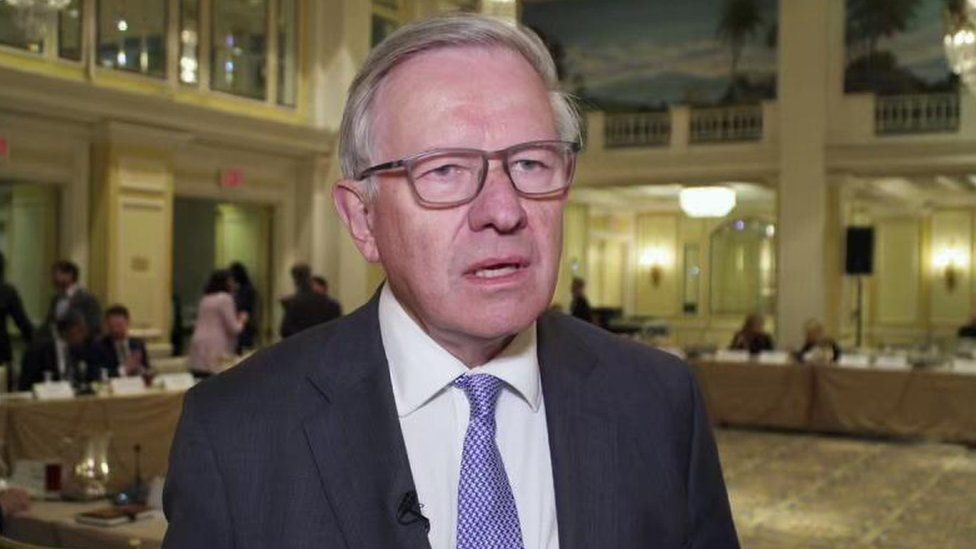
HSBC’s head of public affairs Sir Sherard Cowper-Coles
By Peter Hoskins
Business reporter
HSBC’s head of public affairs has apologised after accusing the British government of being “weak” for complying with US demands to cut back business dealings with China.
A spokesperson for the bank said Sir Sherard Cowper-Coles made the comments “at a private roundtable discussion and shared his personal views.”
US-China ties have become increasingly tense in recent years.
The UK-based firm makes much of its profit in Asia, including China.
“I was speaking at a private event under Chatham House Rules and my personal comments do not reflect the views of HSBC or the China British Business Council. I apologise for any offence caused,” Sir Sherard, who is also chairman of the China-Britain Business Council lobby group said in a statement provided to the BBC by HSBC.
Under the Chatham House Rule, attendees of meetings are free to use information gained from discussions, but are not allowed to reveal who made any comments.
The rule, which originated almost a century ago, is a system for holding debates about controversial topics and is named after the London headquarters of the Royal Institute of International Affairs.
Sir Sherard told the closed-door meeting that Britain often bowed to calls by the US and should look after the UK’s own interests, rather than blindly following Washington’s lead, Bloomberg News first reported, citing several people familiar with the matter.
According to Bloomberg, Sir Sherard told the meeting that one example of the UK caving in to US demands was when Britain banned Chinese telecoms giant Huawei from taking part in building the country’s 5G mobile phone networks in 2020.
More than 80% of HSBC’s profits are generated from outside the UK, with over half of that coming from mainland China and Hong Kong.
It means that the global banking giant has to walk a fine diplomatic line between authorities in Washington and Beijing.
The UK and other Western governments have found themselves caught between the constant tit-for-tat between the world’s two biggest economies as they hit each other with trade restrictions.
In October, Washington announced restrictions on Beijing’s access to advanced computer chip technology.
China responded this month with restrictions on exports of gallium and germanium – two materials key to the semiconductor industry.

